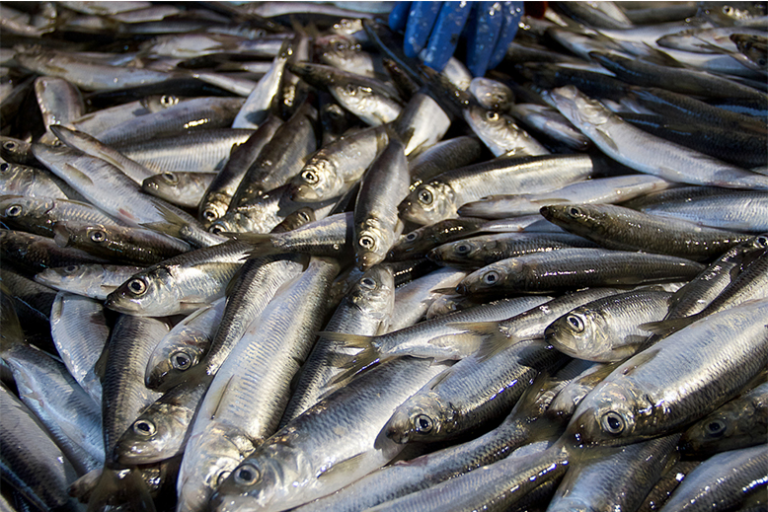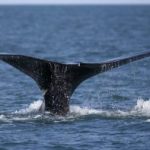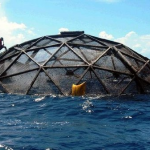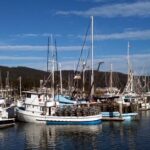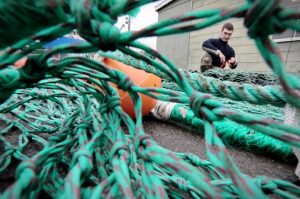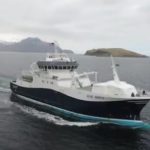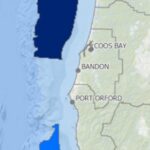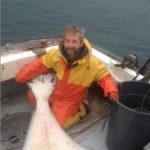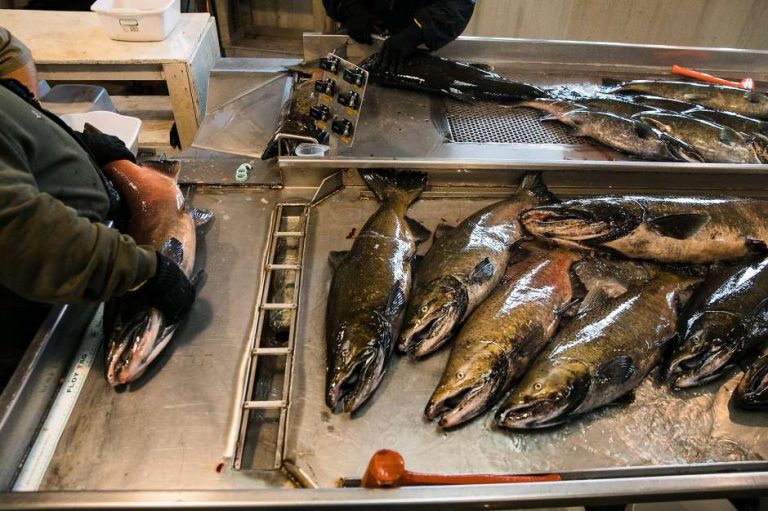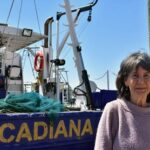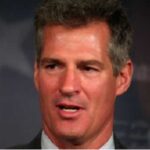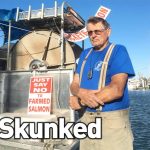Daily Archives: June 17, 2017
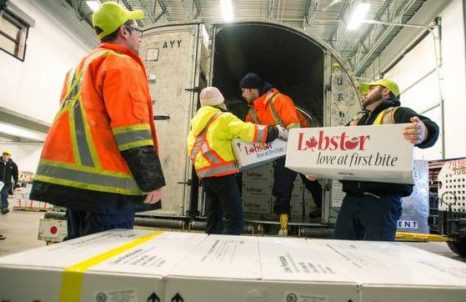
Not your grandfather’s fishery
The harvesting is so different — bigger boats, bigger fishing effort, deeper-water fishing, so much further from shore on average, more ambitious in all respects. The boats themselves are equipped with everything under the sun to make the task more manageable. The knowledge is much more substantial. We live in the Facebook Generation. Everything is visible and transparent, whether publishing a newspaper or determining the value of a lobster, there are absolutely no secrets. And fish harvesters make it their business to know what a lobster is selling for in Thunder Bay on a Saturday night. The world is smaller — direct flights from Halifax to Europe and Asia make transit time for premium quality fisheries a fraction of what was required previously. click here to read the op-ed by Stewart Lamont, managing director of Tangier Lobster Company 19:26
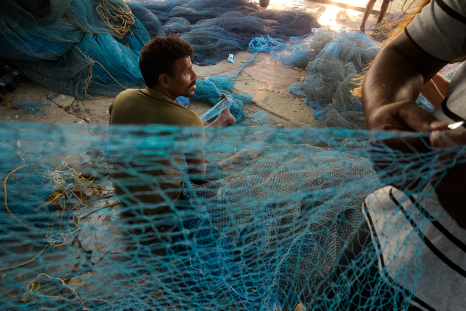
Asia Is Trawling for a Deadly Fishing War
THALVUPADU, Sri Lanka — Stanley Cruz, a fisher in this beachside village on the island of Mannar off Sri Lanka’s northwestern coast, stands with his bare feet in the sand, holding up a green net between his hands. “This is the kind of net, you see. Last week, we lost many hundreds of these. “It keeps happening over and over,” says Mary Subramali, an elderly woman who cleans and sorts the incoming fish. “The trawlers come to take our fish and cut our nets, destroying them with their propellers. My son just lost his for the second time.” She picks up a cold, slippery fish from a basket and severs its head and fins with ease. For her and others on the northern coast of Sri Lanka, losing nets has become a familiar story. Over 30,000 people from the minority Tamil community in Thalvupadu work as fishers, mainly on a small-scale, mostly earning less than $2,500 per year, about two-thirds of the islands’ average. Nets in these coastal societies are precious investments — even a small one costs $23, and the village has lost nearly 1,000 of them. A very good read. click here to read the story 18:28
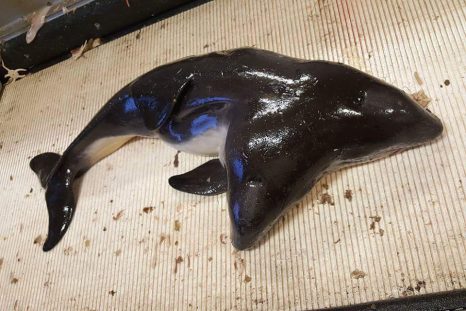
Dutch Fishermen catch rare two-headed porpoise
A fishing vessel in the North Sea between the UK, the Netherlands, and Scandinavia found quite the catch last month: the first-ever documented two-headed harbor porpoise. The dead conjoined porpoise twins were caught up in the GO9 Onderneming fishing vessel’s trawl net on May 30, according to the Natural History Museum of Rotterdam’s journal Deinsea. The Dutch museum said the ship’s workers were “astonished” to find that the animal had what appeared to be two heads. They took pictures and then threw it overboard. The crew thought it would be illegal to keep the dead porpoise, so the actual specimen is now lost to the ocean. click here to read the story 16:22
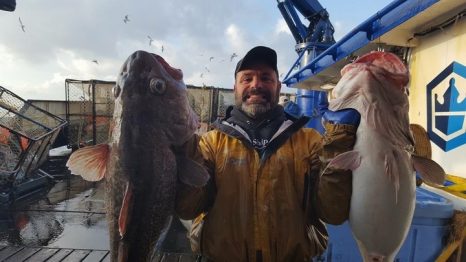
Matt Bradley Of ‘Deadliest Catch’ Shows That Recovery From Addiction Is Possible No Matter What
Although I’m in long term recovery and I work in the treatment industry, I still encounter people whose recovery amazes me. Matt Bradley is one of those people. Matt caught my attention when I saw him on an episode of Deadliest Catch. He’s a fisherman who has crewed with Northwestern for over a decade. What intrigued me wasn’t just the drama and action of the fishing crew, but Matt’s openness and honesty about his struggle with substance use. A long time drug user, Matt didn’t encounter the serious consequences that so many people face until he was in his 20s. Although he grew up with normalized drug use—-stealing joints and alcohol from the adults in his Section 8 housing development—-he didn’t really think he had a problem until he started using heroin. click here to read the story 15:40
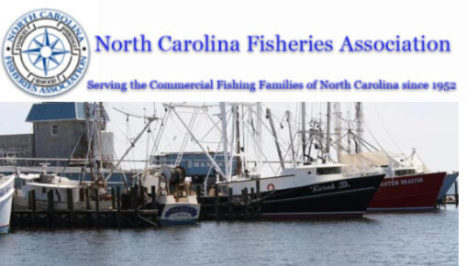
North Carolina Fisheries Association Weekly Update for June 16, 2017
Click here to read the Weekly Update, to read all the updates, Click here Seafood Lobby Day this past Wednesday was a tremendous success! 15:02
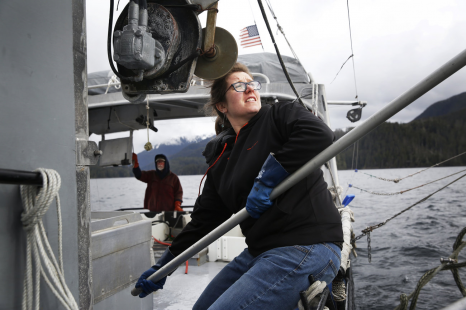
In This Alaska Family, Life Lessons Are Passed Down On The Water
We’re on the Alexa K, a 45-foot steel-hulled troller, with captain Charlie Wilber, 69, and his 27-year-old daughter, Adrienne, “heading out into the briny deep!” as Charlie wryly tells us. Charlie has been fishing these waters for nearly 40 years. “I never would have imagined I’d end up doin’ this,” he says. Raised in Omaha, Neb., he came to Alaska fresh out of college. He had a job as a smoke jumper, fighting fires near Fairbanks. But once he went out fishing with a friend, he “got the bug,” as he puts it. He’s been fishing ever since. And it’s always been a family adventure. Charlie says he bought the Alexa K because the boat’s bulwarks were high enough that his daughters, Adrienne and her younger sister, Berett, couldn’t fall off. click here to read the story, view 11 images 11:04
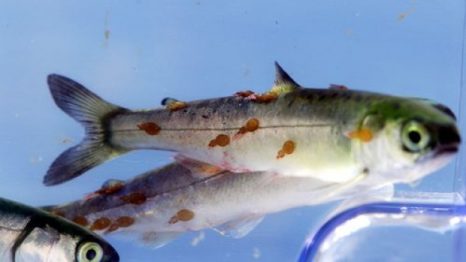
Salmon farms should be worried about more than just one species of sea lice
Migrating young sockeye salmon that are highly infected with parasitic sea lice grow more slowly, according to a new study from Simon Fraser University researchers. That matters, the experts said, because growing quickly can be the difference between life and death for vulnerable juvenile salmon. “Previous studies have shown that to survive to adulthood, young salmon need to get big fast,” said Sean Godwin, a PhD student at SFU and lead author on the study. “Those that grow more slowly — as we found, those heavily infected with sea lice — those fish are more likely to die.” Many people opposed to fish farms have raised concern over declining wild Fraser River sockeye and the potential for parasite transfer from salmon farms. click here to read the story 10:23
Ocean polluters seek to have convictions overturned
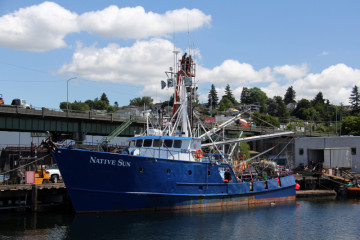 A father-son team that was convicted of polluting Puget Sound and the ocean have asked a judge to toss their convictions. In Seattle federal court on Friday, Bingham Fox asked the judge to throw out his conviction for violating the Clean Water Act. His attorney accused the government of “prosecutorial misconduct.” Fox and his son Randall Fox were convicted of pumping oily bilge water from their 80 fishing vessel “Native Sun.” A deckhand provided the US Coast Guard with a video showing a makeshift pump that pumped engine oil overboard while the vessel was in Blaine harbor. Federal law requires commercial vessels to filter out engine oil and dispose of it properly on shore, which costs time and money. click here to read the story 09:12
A father-son team that was convicted of polluting Puget Sound and the ocean have asked a judge to toss their convictions. In Seattle federal court on Friday, Bingham Fox asked the judge to throw out his conviction for violating the Clean Water Act. His attorney accused the government of “prosecutorial misconduct.” Fox and his son Randall Fox were convicted of pumping oily bilge water from their 80 fishing vessel “Native Sun.” A deckhand provided the US Coast Guard with a video showing a makeshift pump that pumped engine oil overboard while the vessel was in Blaine harbor. Federal law requires commercial vessels to filter out engine oil and dispose of it properly on shore, which costs time and money. click here to read the story 09:12
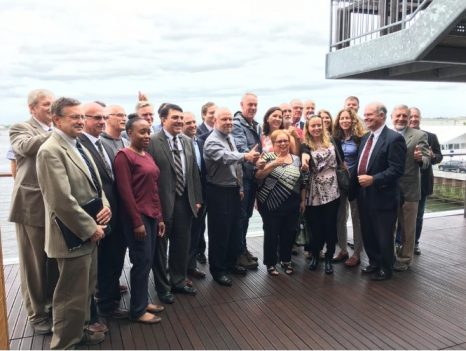
A meeting with Interior Secretary Ryan Zinke – Concerns aired about Northeast Canyons and Seamounts Marine National Monument
Fishing groups from around New England met with Interior Secretary Ryan Zinke on Friday to air complaints about former President Barack Obama’s designation of the Northeast Canyons and Seamounts Marine National Monument last year. The monument, the first marine national monument in U.S. Atlantic waters, protects about 4,000 square miles of ocean 150 miles southeast of Cape Cod. Fishermen say the protected area in which fishing is prohibited hurts their business and places an undue burden on an already heavily regulated industry. But Priscilla Brooks, vice president and director of ocean conservation at the Conservation Law Foundation, said the former administration did take fishermen’s concerns into account. Obama reduced the size of the original proposed monument by 60 percent and allowed lobster and crab fishermen a seven-year grace period to continue fishing there. “There was a robust public process,” she said. (BS!) click here to read the story 08:25




































